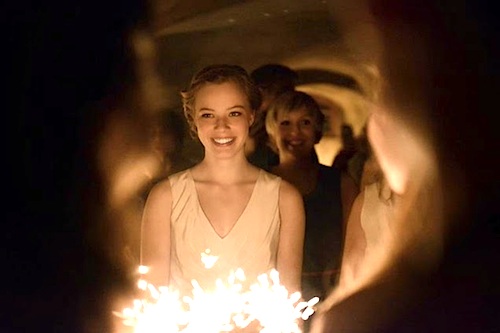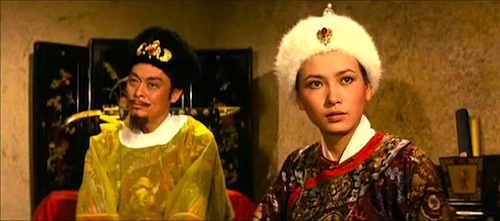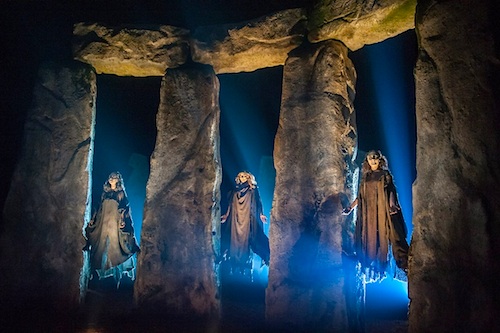By Joe Bendel. During the late 1960s, the New Left popularized the slogan “the personal is political.” They did not do Nelly Senff any favors by doing so. When she crosses over to West Berlin, she cites “personal reasons” as her motivation, but the Allied security services are primed to distrust such evasive answers, for good reason. Senff quickly learns she might be unwittingly caught amidst a wider conspiracy in Christian Schwochow’s West, which screens during the 2014 KINO! Festival of German Films in New York.
Senff was once a leading scientist in East Germany, much like her late Russian partner, Wassilij. He was an erratic presence in her life and that of their son, Alexej, but they still miss him dearly. Therefore, it is a bit of a shock when Senff learns that her roguish lover was also a Stasi courier, who perhaps faked his death to escape their grasp. Keen to find out his whereabouts, the various agencies withhold Senff’s requisite approvals until she gives them answers. That means for the foreseeable future, she and Alexej will be stuck in the gray, institutional Marienfelde Refugee Center and not legally employable.
The respectable West is not nearly comparable to Petzold’s Barbara or Donnersmarck’s The Lives of Others, but it never seeks to excuse or deny the human rights violations of the GDR regime. From what we see and hear in the film, life in the East was pretty bad. There is a fair amount of moral equivalency going on, but the Americans emerge looking the best, thanks to the sympathetic presentation and portrayal of CIA agent John Bird, playing with finely nuanced sensitivity by Jacky Ido.

For similar reasons, the obvious comparison between Nina Hoss’s Dr. Barbara Wolff and Jördis Triebel is not favorable to the latter. She does a fine job expressing Senff’s mounting paranoia, but she cannot reach the same levels of diffident defiance and quiet vulnerability.
Frankly, in terms of its structure and tenor, West is a bit erratic. Just when it is poised to become a Brezhnev era Third Man, it pulls back from the brink, settling for more domestic dramas. Still, it definitely convinces viewers government buildings are no place to raise a child. It also takes seriously the notion of Stasi persecution targeting GDR defectors.
Ultimately, West works towards a hopeful statement rather than an angry one, making it an interesting film to see in conjunction with Dercourt’s A Pact, also screening during the festival. It is a work of some merit, but it lacks the moral heft and tragic pay-off of its more heralded predecessors. Recommended with minor reservations, West opens this year’s non-MoMA KINO! with an invite only screening at the Museum of the Moving Image today (6/12), in advance of a forthcoming New York theatrical release.
LFM GRADE: B-
Posted on June 12th, 2014 at 8:18pm.






